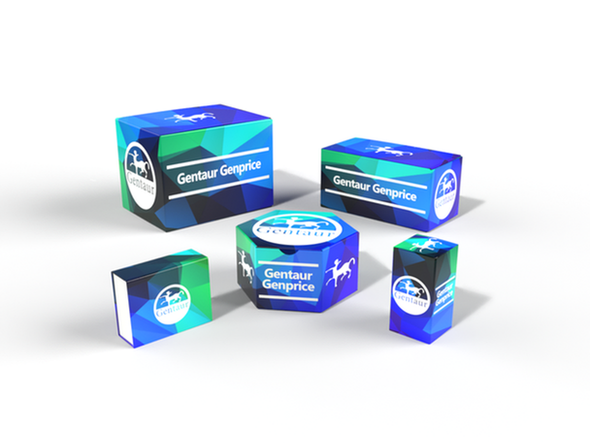740
Rat Eosinophil cationic protein (ECP) ELISA Kit | AE22014RA
- SKU:
- 740-AE22014RA
- Availability:
- Usually ships in 5 working days
Description
Rat Eosinophil cationic protein (ECP) ELISA Kit | AE22014RA | Gentaur UK, US & Europe Distribution
Species Reactivity: Rat (Rattus norvegicus)
Abbreviation: ECP
Alternative Name: RNASE3; RNS3; cytotoxic ribonuclease|eosinophil cationic protein
Application: ELISA
Range: 62.5-4000 pg/mL
Sensitivity: 15.6 pg/mL
Intra-Assay: ≤5.0%
Inter-Assay: ≤10.2%
Recovery: 0, 94
Sample Type: Serum, Plasma, Other biological fluids
Detection Method: Sandwich
Analysis Method : Quantitive
Test Principale: This assay employs a two-site sandwich ELISA to quantitate ECP in samples. An antibody specific for ECP has been pre-coated onto a microplate. Standards and samples are pipetted into the wells and anyECP present is bound by the immobilized antibody. After removing any unbound substances, a biotin-conjugated antibody specific for ECP is added to the wells. After washing, Streptavidin conjugated Horseradish Peroxidase (HRP) is added to the wells. Following a wash to remove any unbound avidin-enzyme reagent, a substrate solution is added to the wells and color develops in proportion to the amount of ECP bound in the initial step. The color development is stopped and the intensity of the color is measured.
Product Overview: Eosinophil Cationic Protein (ECP) also known as ribonuclease 3 is a basic protein located in the eosinophil primary matrix. In humans, the eosinophil cationic protein is encoded by the RNASE3 gene. ECP is released during degranulation of eosinophils. This protein is related to inflammation and asthma because in these cases, there are increased levels of ECP in the body. There are three glycosolated forms of ECP and consequently ECP has a range of molecular weights from 18-22 kDa.
Stability: The stability of ELISA kit is determined by the loss rate of activity. The loss rate of this kit is less than 5% within the expiration date under appropriate storage condition. The loss rate was determined by accelerated thermal degradation test. Keep the kit at 37°C for 4 and 7 days, and compare O.D.values of the kit kept at 37°C with that of at recommended temperature. (referring from China Biological Products Standard, which was calculated by the Arrhenius equation. For ELISA kit, 4 days storage at 37°C can be considered as 6 months at 2 - 8°C, which means 7 days at 37°C equaling 12 months at 2 - 8°C) .






